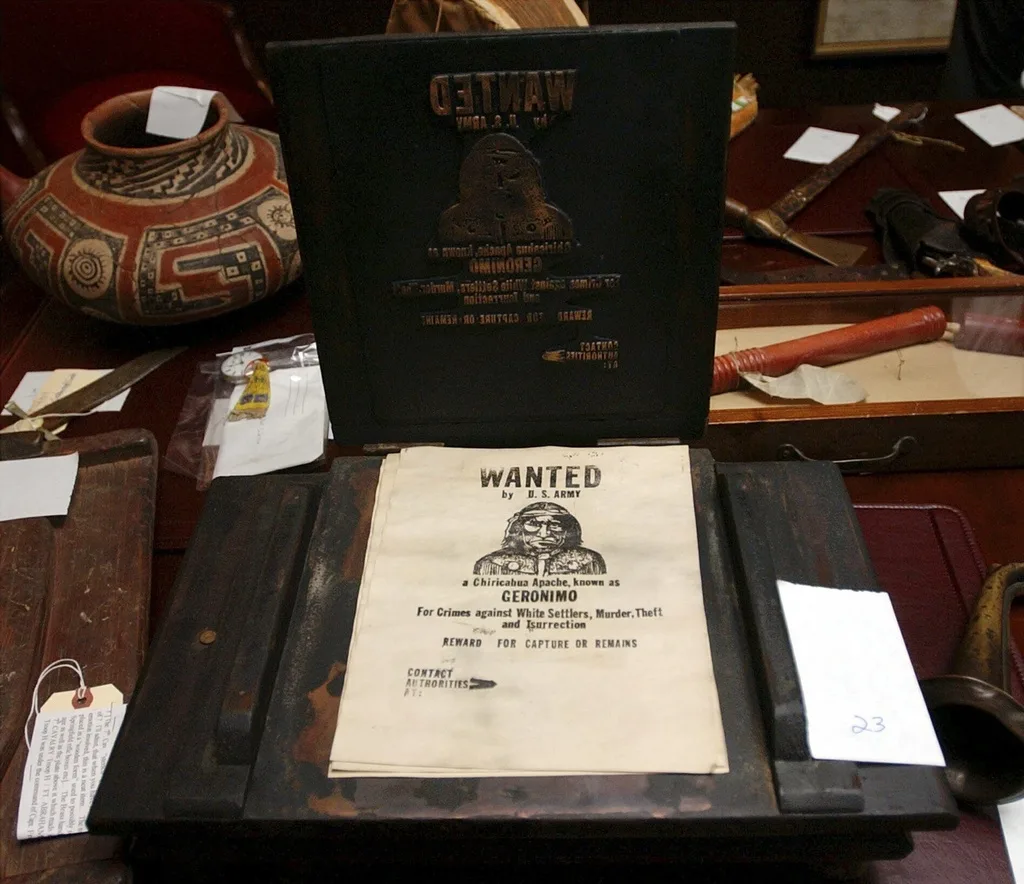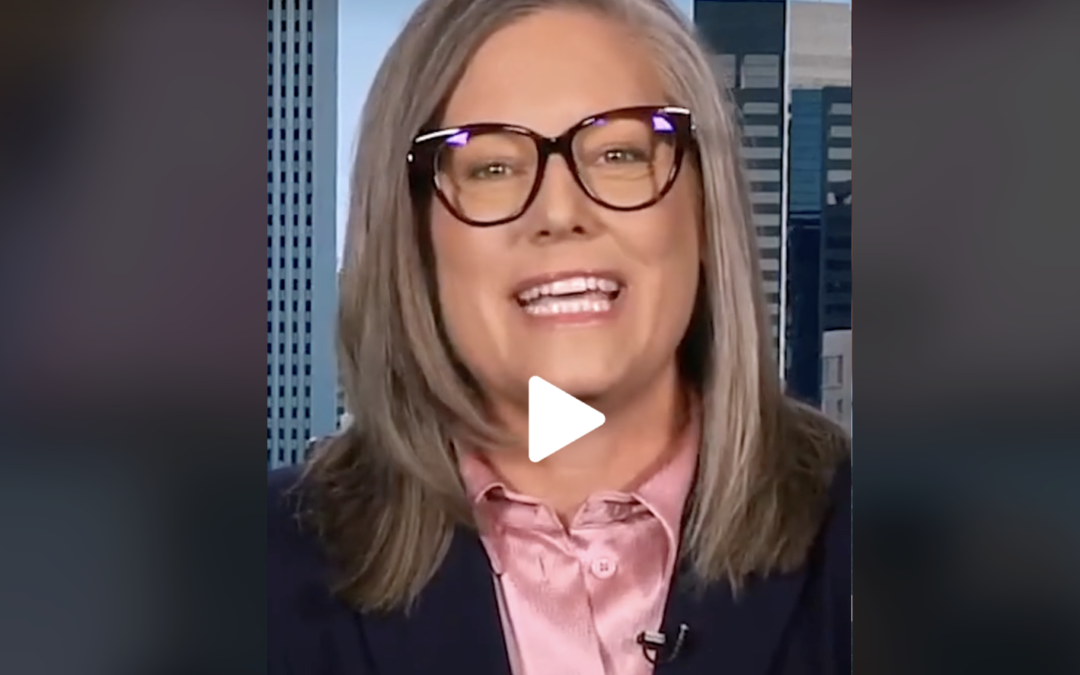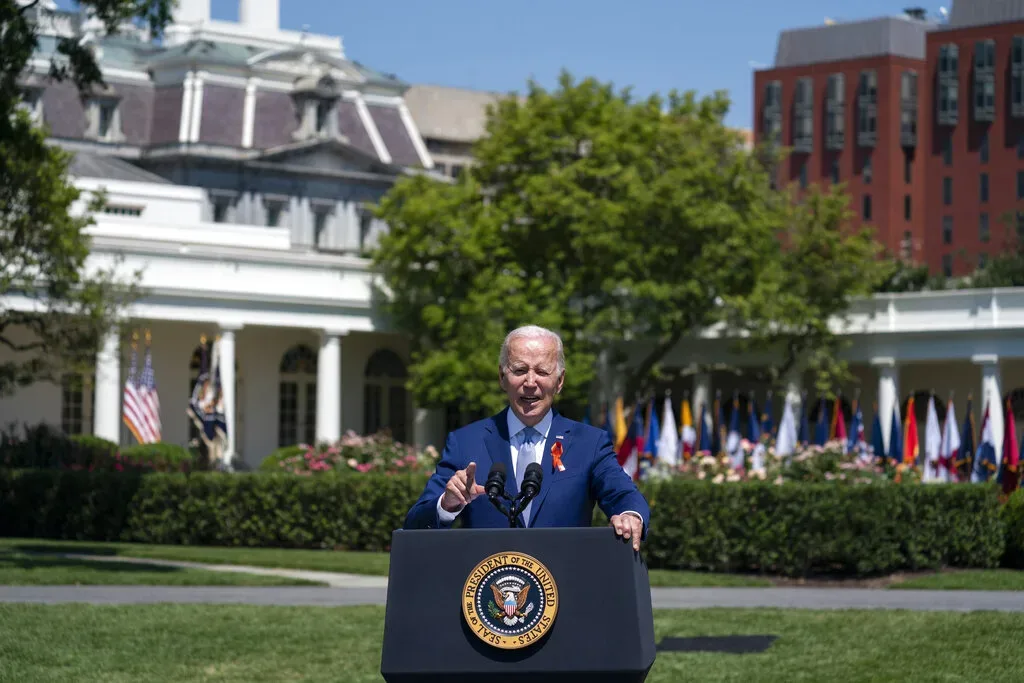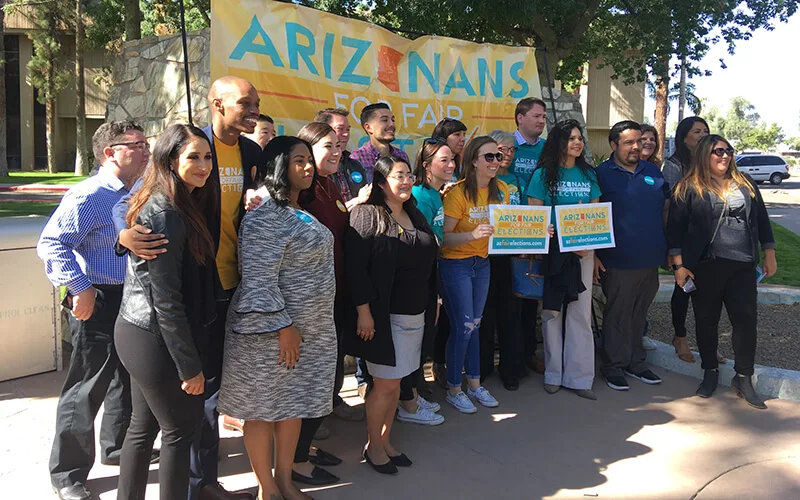
While state lawmakers propose restrictive voting laws, one advocacy initiative seeks to overhaul the whole system.
A series of bills proposed by Arizona lawmakers could make it more difficult for residents to vote in upcoming elections. They include stricter restrictions on identification used at polling places and an end to the curing process for unsigned mail-in ballots.
Two of the proposals come from state Sen. Michelle Ugenti-Rita (R-Scottsdale), a veteran lawmaker who has sought to develop a more stringent voting process throughout her career. In 2016, she successfully put an end to ballot harvesting, a practice where individuals could collect voters’ completed absentee ballots and submit them to election officials. In 2019, she also proposed legislation that would have purged 200,000 people from the state’s Permanent Early Voter List (PEVL).
As in years past, Ugenti-Rita – along with at least one other Republican legislator – is once again proposing multiple bills that would alter Arizona’s electoral landscape.
1. No second chance for unsigned ballots
Roughly 80% of voters in Arizona are in the state’s PEVL system, allowing them to receive a ballot by mail up to 27 days before an election. Voters must sign the envelope when they mail back their ballot, which is then verified by the County Recorder’s office. Currently, the law requires county officials to notify voters if the signature is missing or does not match official records, and the voter has five business days to fix it.
The process of verifying signatures came under fire, however, after the 2018 election. The Navajo Nation sued former Secretary of State Michele Reagan’s office for discrepancies in how different counties handled the signature verification process, known as ”curing.” The lawsuit resulted in the addition of the five-day verification rule, and the creation of a statewide election procedures manual by Secretary of State Katie Hobbs.
But lawmakers like Ugenti-Rita feel the curing process is too lenient, and believes voters need to take voting seriously enough to turn their ballot in on time. In her proposed legislation, the curing process would be removed entirely for ballots mailed in with unsigned envelopes.
“That is what early voting is, that you get it in the mail and return it in the mail. There’s a responsibility on the voter’s part,” Ugenti-Rita told the Arizona Mirror.
However, the Navajo Nation has stated that such actions will result in another lawsuit. Tribal leaders emphasized that allowing voters five days to cure their ballot was part of their settlement with the Secretary of State’s office, and removing that guarantee would lead to discriminatory practices.
Another lawsuit over the curing process alleges that in 2018, 3,062 ballots in Navajo County and 6,227 ballots in Yuma County were rejected due to inconsistent curing practices, and would lead to further disenfranchisement if Ugenti-Rita’s bill became law. Both counties mentioned in the lawsuit are largely rural and some of the most diverse regions in the state: Native Americans make up 45% of Navajo County, and Yuma County is 64% Latino.
2. Moving election powers to unelected officials
Ugenti-Rita introduced another piece of election-related legislation, one that weakens the power the Secretary of State has in overseeing elections. The longtime senator claims that Hobbs’ changes to the elections manual is an authoritative overstep, and wants to put the manual under the purview of the Governor’s Regulatory Review Council (NRGC).
“This is rulemaking,” Ugenti-Rita said in a Capitol Media Services report. “That has to be something that’s done at the Legislature.”
The NRGC is made up of officials appointed by the Governor, and its decisions are subject to public hearings. Under Ugenti-Rita’s bill, changes made by the Secretary of State would be sent to the NRGC for review and then approved by the Governor. Currently, any changes are sent directly to the Governor and state Attorney General for approval. The change would signal a significant shift in authority over election procedures from the Secretary of State to the office of the Governor.
But Ugenti-Rita isn’t the only legislator advocating for stricter voting laws.
3. Seven items taken off of approved identification list for polling places
Rep. Kelly Townsend (R-Mesa) filed a bill that would prevent voters from using utility bills, bank or credit union statements, their vehicle registration, vehicle insurance card or school ID cards as proof of identification at polling places.
Rep. Athena Salman (D-Tempe), who attempted to have the voting age lowered to 16 in 2017, said removing student IDs from the approved identification list is an “unnecessary attack on young voters.” State law requires voting IDs to have the voter’s physical address printed on it, which is not the case for most schools in the state.
However, while lawmakers like Ugenti-Rita and Townsend are hoping to minimize options for voters, the Arizona Advocacy Network’s (AZAN) recently-announced ballot initiative seeks to increase access to voting and add transparency to the state’s elections.
4. A new approach at clean and fair elections
The AZAN’s initiative, known as the Fair Elections Act, would trigger the following changes in Arizona’s elections:
- Offer automatic voter registration through the Arizona Motor Vehicle Division.
- Remove requirement to be registered to vote 29 days before election and allow citizens to register and vote on Election Day.
- Remove requirement for all mail-in ballots to be received by Election Day, instead allowing them to be mailed as late as the date of the election.
- Extend hours for polling places to begin the Monday before Election Day.
- Lower limits on campaign donations for all non-federal candidates.
- Increase funding for Clean Elections Commission.
- Provide tax-funded vouchers to registered voters to be used for donations to candidates.
- Prohibit lawmakers from receiving gifts from lobbyists worth more than $20.
- Ban legislators from lobbying for two years after leaving office.
The AZAN is relying partially on volunteers to collect signatures, and will need to collect 237,645 signatures by July 2 to qualify for the ballot in November 2020 – leaving the door open for potential legal troubles if Ugenti-Rita or Townsend’s bills become law by the time the legislative session ends in March.
Politics
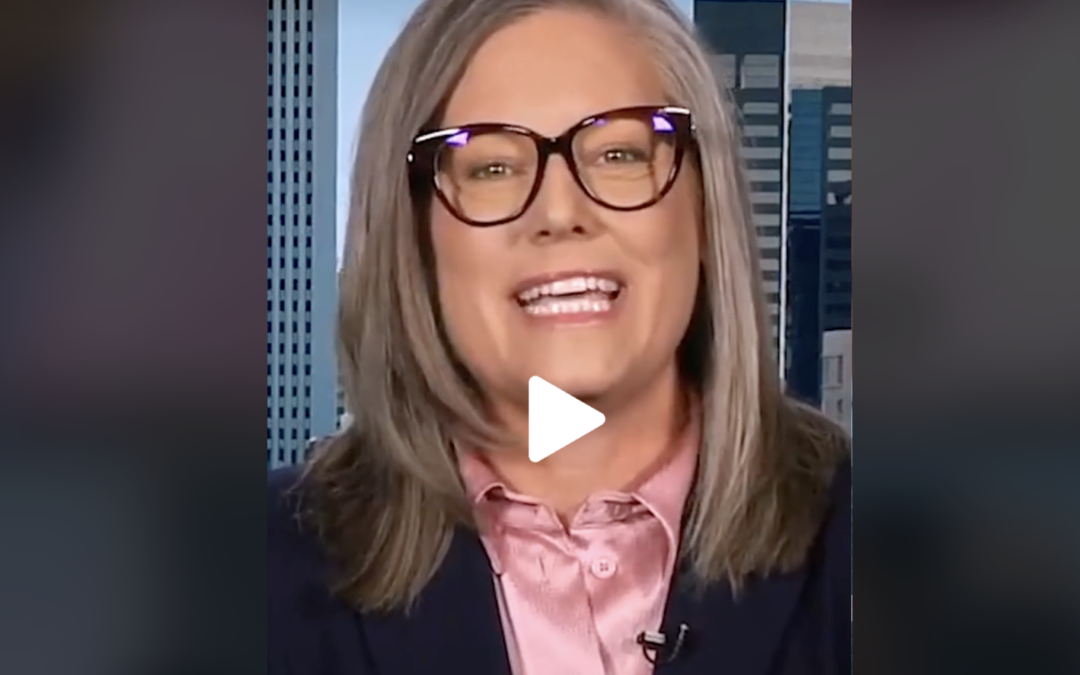
VIDEO: Arizona Gov. Katie Hobbs calls 1864 abortion ban ‘absolutely outrageous’ on ‘The View’
@coppercourier Former President Donald Trump and US Senate candidate Kari Lake have both attempted to cover up their support for total abortion bans...
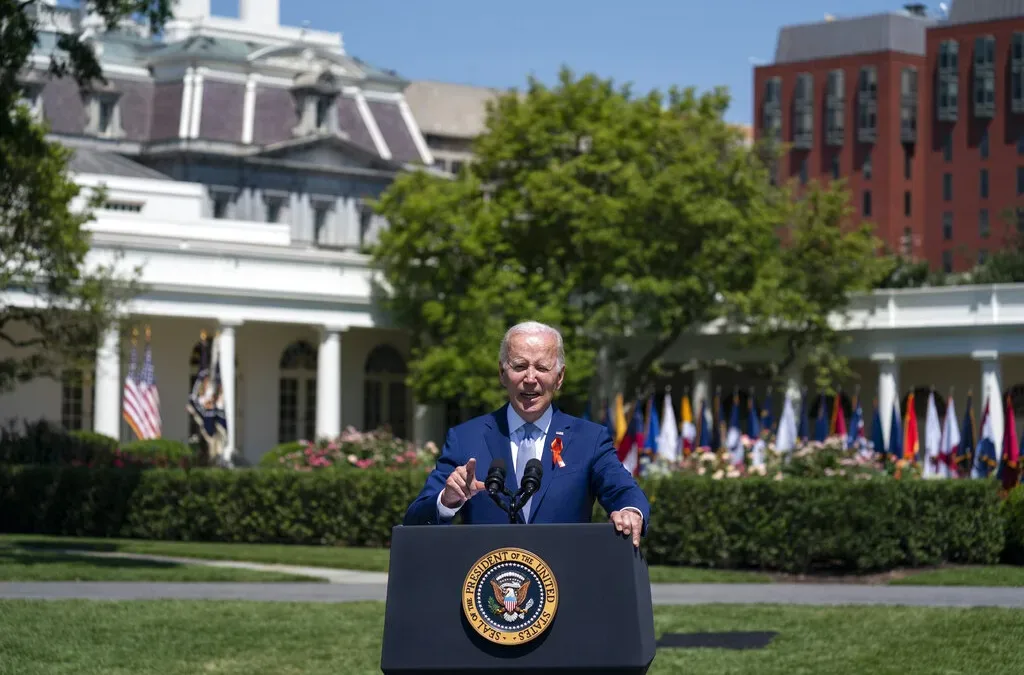
Biden announces new action to address gun sale loopholes
The Biden administration on Thursday announced new action to crack down on the sale of firearms without background checks and prevent the illegal...
Local News
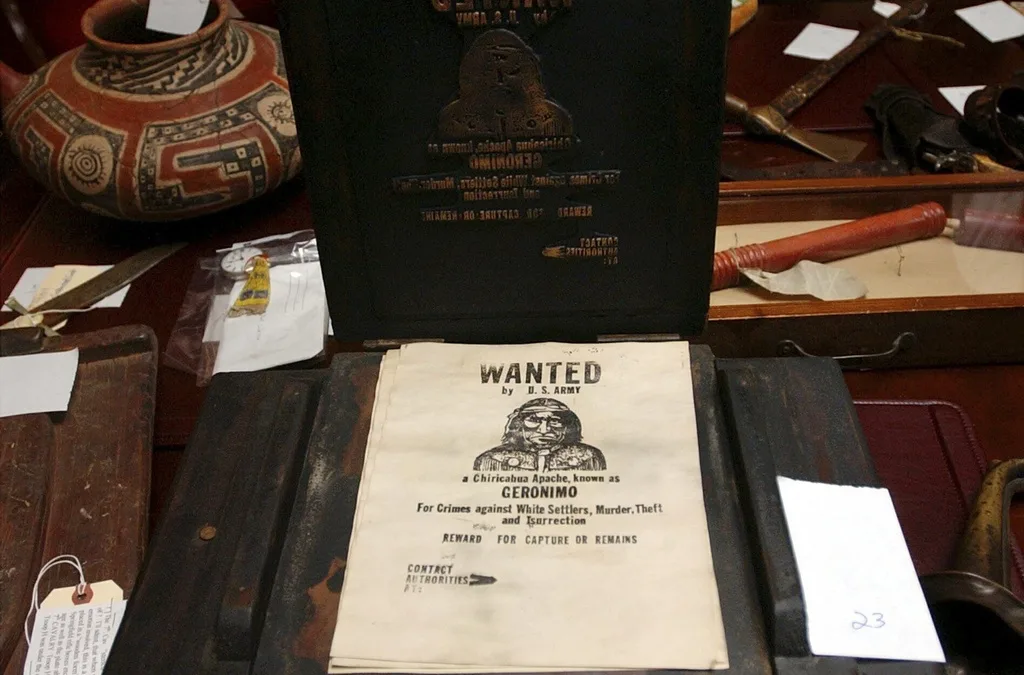
The Civil War raged and fortune-seekers hunted for gold. This era produced Arizona’s abortion ban
Arizona's 1864 code elaborately describes restrictions on duels, ruling any person involved in the fighting of a duel would be imprisoned for one to...
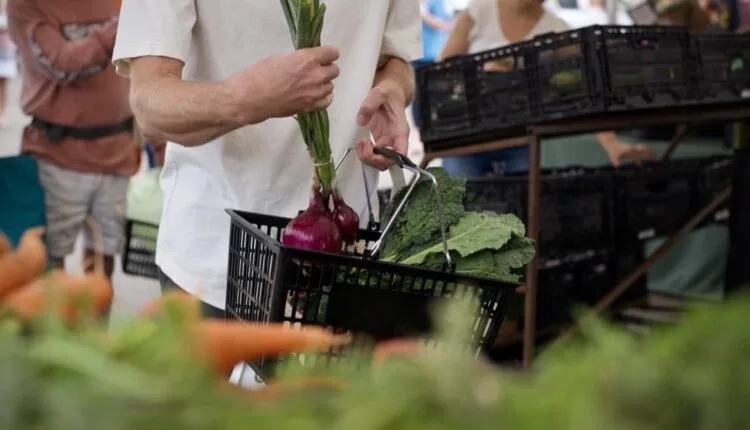
Here are 8 of the best farmers markets in Arizona
The bright sun shining down on the tents covering the local wares as a light breeze caresses the cheeks of every passerby. The scent of plants in...




